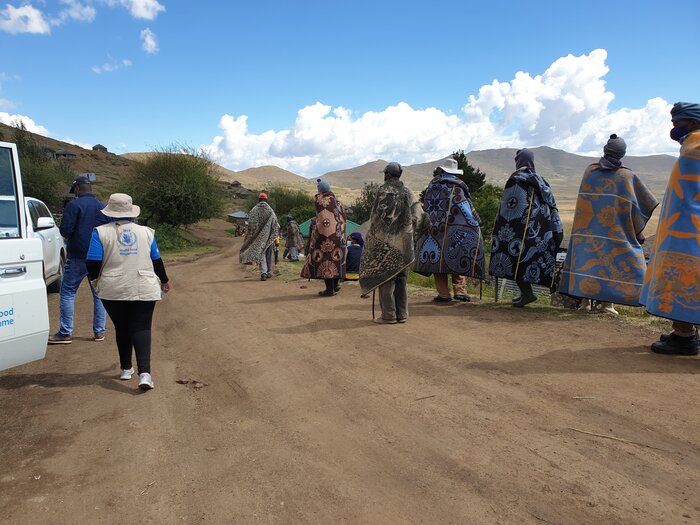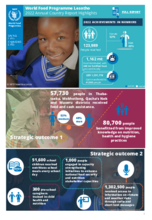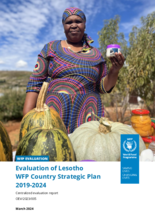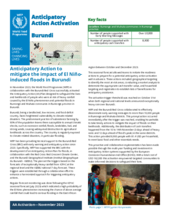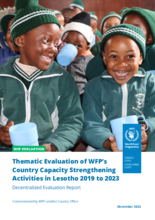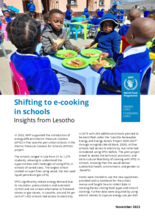Lesotho
- 24.1%
- people living in extreme poverty
- 580,000
- people are food insecure
- 2 million
- population
The Kingdom of Lesotho, landlocked within South Africa, is a lower-middle-income country with a population of 2 million and a land mass of 30,555 km sq. Lesotho has high levels of income inequality, with almost half its population living in poverty, and a quarter in extreme poverty.
Food insecurity remains a chronic challenge, hindering the country’s development and progress towards zero hunger. Despite some economic growth, Lesotho has been unable to address rural poverty and promote inclusive social development.
Over a quarter of the population faces high levels of acute food insecurity and requires humanitarian action to reduce food gaps, protect and restore livelihoods, and prevent acute malnutrition.
What the World Food Programme is doing in Lesotho
-
Crisis response
-
WFP provides food and cash assistance to people identified as severely food insecure during a crises. We also support early recovery through resilience-building activities such as land rehabilitation to foster people’s ability to meet their food security and nutrition needs. At-risk groups, such as pregnant and breastfeeding women, and people living with HIV, are also targeted through specialized nutritious food.
-
Social protection
-
WFP supports the government’s school-meal programmes by providing food to 60,000 students from over 2,400 Early Childhood Care and Development Centers, to improve access to food and the nutritional status of children. WFP also provides technical training to enhance the Government’s capacity to implement an early-warning system that is linked to social-protection systems and other initiatives.
-
Nutrition
-
WFP provides technical training and financial support to the Government of Lesotho and other actors regarding multisectoral coordination, planning, evidence building and implementation of nutrition policies and programmes, to improve nutrition among the entire population.
-
Resilience building and smallholder-farmer support
-
WFP supports initiatives including land rehabilitation, creating communal gardens and water harvesting. These are nutrition sensitive and improve and diversify the livelihoods of vulnerable communities and households affected by climate change and land degradation. WFP also provides training to smallholder farmers and other value-chain actors, particularly women, in climate-smart agriculture, food safety and quality, marketing of nutritious foods and financial services.
-
Service delivery
-
WFP provides expertise and services on supply chain on behalf of the Government and partners. We also provide on-demand cash-transfer services to government partners, UN agencies, and national and international NGOs.
Lesotho news releases
Go to pagePartners and donors
Find out more about the state of food security in Lesotho
Visit the food security analysis pageOperations in Lesotho
Contacts
Office
WFP House,11 United Nations Road, Opposite Maseru Club, P.O. Box 301, Maseru, Lesotho
Maseru
Lesotho

